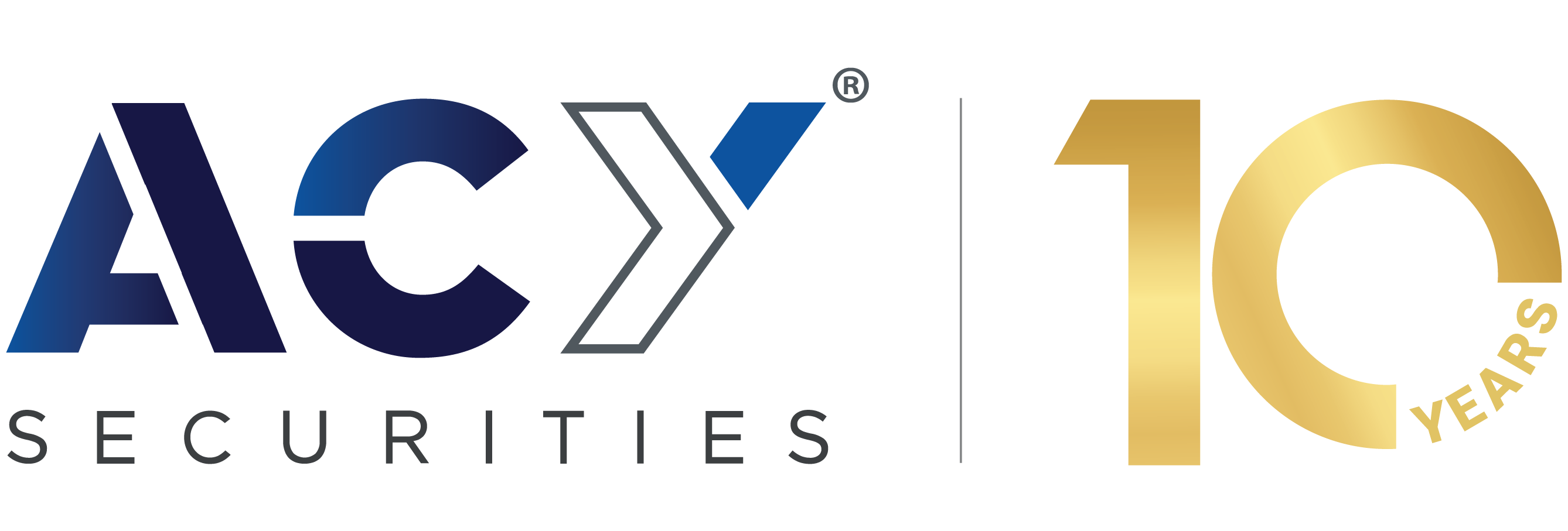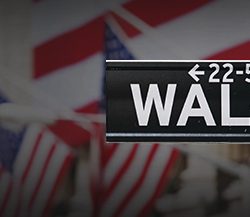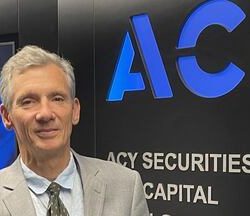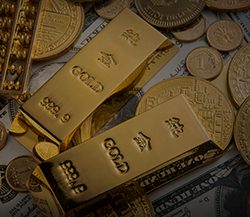From the incidents in the Tonkin Gulf in August 1964 to the deployment of forty-four combat troop battalions in July 1965, these months span congressional authorization for military action as well as the Americanization of the conflict. So did his long time mentor and friend, Senator Richard Russell of Georgia. The failure of free men in the 1930s was not of the sword but of the soul. An Asia so threatened by Communist domination would certainly imperil the security of the United States itself. The subsequent division of Vietnam into two zones, plus American prevention of national elections in 1956, and the coming to power in the South of the corrupt and ineffective Ngo Dinh Diem sucked America deeper into the region. There are no easy choices when you are chief executive of a nation which is both a democracy and the most powerful nation on earth. Joseph Siracusa stated that, America developed an increasingly rigid ideological view of the world anti-communism, anti-socialism, anti-leftist that came to rival that of Communism. This appears to be as true of Johnson as it was of Richard Nixon and Ronald Reagan. Lyndon B. Johnson visits South Vietnam - HISTORY On the pretext that the airfields needed for US aircraft had to be defended, the number of ground troops increased swiftly. Lyndon B. Johnson is one of the most consequential US presidents, responsible for passing some of the most significant pieces of legislation in modern history, including the Civil Rights Act of . The job, therefore, couldnt be finished which would mean an open-ended commitment. McNamaras arrival and report back to Johnson on 21 July began the final week of preparations that would lead to Johnsons announcement of the expanded American commitment. A series of meetings with civilian and military officials, including one in which LBJ heard a lone, dissenting view from Undersecretary of State George Ball, solidified Johnsons thinking about the necessity of escalating the conflict. His decision to step away from the presidency in March 1968 ensured that the endgame in Vietnam did not happen on his watch. We beat the Communists first, then we can look around and maybe give something to the poor., It was for these reasons that Johnson carried out the military escalation quietly and almost clandestinely. 518. Communist China made it clear that it would not permit an invasion of North Vietnam. Such expressions of doubt and uncertainty contrasted starkly with the confidence administration officials tried to impart on their public statements. The presence of several policy options, however, did not translate into freewheeling discussions with the President over the relative merits of numerous strategies. governance Particularly critical was J. William Fulbright, chairman of the Senate Armed Services Committee, who, in the wake of the crisis, took the Johnson administration to task for a lack of candor with the American public. Just days before the vote, the U.S. air base at Bien Hoa was attacked by Communist guerrillas, killing four Americans, wounding scores of others, and destroying more than twenty-five aircraft. These were: that America keeps her word; that the future of all south-east Asia was the issue; that our purpose is peace; and that the war was a struggle for freedom. Furthermore, Johnson was acutely aware that he was JFKs successor. In fact, Johnson sought the counsel of ad hoc groups and advisers during the escalation of the war. Randall B Woods does not work for, consult, own shares in or receive funding from any company or organization that would benefit from this article, and has disclosed no relevant affiliations beyond their academic appointment. by Dr David White, Alasdair Gray on the Declaration of Arbroath: A Personal View, The Edinburgh & Glasgow Railway and Sunday Travel by Dr John McGregor, Monitoring Morale: The History of Home Intelligence 1939-1944 by Paul Addison and Jeremy Crang, How Churchills Mind Worked by Paul Addison, Red Herrings & Codswallop: Fishing History Pre-Brexit by Pouca McFeilimidh, Stalin, the Red Tsar? The number increased steadily over the next two years, peaking at about 550,000 in 1968. From the above two quotations, there seems little doubt that Johnson genuinely believed there was a threat of world domination by Communism, a very mainstream Cold-War view among American politicians from the late 1940s to the 1980s. Much of the history of 1968 we recall now is . They recommended that LBJ give Westmoreland what he needed, advice that General Eisenhower had also communicated to the White House back in June. The Secrets and Lies of the Vietnam War, Exposed - The New York Times During the intense debated that occurred within the foreign policy establishment in the spring and summer of 1965, Johnson himself was frequently the leading dove. Although there were contradictory reports about the engagement in the gulfabout which side did what, if anything, and whenJohnson never discussed them with the public. But that endgame, when it did come during the administration of President Richard M. Nixon, was deeply contingent on the course that Johnson set, particularly as it flowed out of key decisions he took as president both before and after his election to office. Original: Jun 30, 2016. The bombing, however, was failing to move Hanoi or the Vietcong in any significant way. Remembering 1968: LBJ Surprises Nation With Announcement He Won't Seek Fifty thousand additional troops were sent in July, and by the end of the year the number of military personnel in the country had reached 180,000. As the bombers flew, the commitment expanded, and criticism of those policies mounted, Johnson sought to convince the American public, international opinion, and even the North Vietnamese that the United States had more to offer than guns and bombs. by David White, Bloody Victory or Bloody Stupidity? Since 1954 every American President has offered support to the people of South Vietnam Our objective is the independence of South Vietnam We want nothing for ourselves. Johnson saw no evidence that President Kennedy had intended to deescalate. Was hubert humphrey ever president? Explained by Sharing Culture Victory in the military conflict became the new administrations top priority. Limited war was a guiding principle restraining successive US presidents for fear of triggering Chinese or Russian intervention as had happened in Korea in 1950. It meant in particular that America could never send ground troops into the North. While the attacks on Pleiku and Qui Nhon led the administration to escalate its air war against the North, they also highlighted the vulnerability of the bases that American planes would be using for the bombing campaign. See Conversation WH6505-29-7812, 7813, 7814, 7815. In explaining why such a large deployment was neededit was clearly far more than was needed for the protection of the Americans remaining in the nations capital after many had already been evacuatedJohnson now offered a markedly different justification that emphasized anti-Communism over humanitarianism, saying that the United States must intervene to stop the bloodshed and to see a freely elected, non-Communist government take power.20 Privately, Johnson argued more bluntly that the intervention was necessary to prevent another Cuba. In the days following his address, a number of influential members of the American press and U.S. Congress questioned the basis for concluding that there was real risk of the Dominican Republic coming under Communist control. Hoping to apply more pressure on the Communists, the administration began to implement a series of tactics it had adopted in principle within the first week of Johnsons presidency. Having secured Congressional authorization with the Tonkin Gulf Resolution, Johnson launched a bombing campaign in the North, and in March 1965, dispatched 3,500 marines to South Vietnam. His extraordinarily slim margin of victory87 votes out of 988,000 votes castearned him the nickname "Landslide Lyndon." He remained in the Senate for 12 years, becoming Democratic whip in 1951 and minority leader in 1953. The Battle of the Somme, by David White, Masculinity, Public Schools and British Imperial Rule, by David White, Chiang Kai-Shek and the USA: Puppet and Puppeteer, but Which Was Which? President Johnson Justifies U.S. Intervention in Vietnam Notably, Roger Hilsman, the assistant secretary of state for Far Eastern affairs and one of the officials most enamored of deposing Diem, had lost his job in the State Department within the first five months of the Johnson administration. It is clear that Johnson was reluctant to become involved in Vietnam. It was in this context that General Westmoreland asked Washington in early June for a drastically expanded U.S. military effort to stave off a Communist victory in South Vietnam. But in February 1965 Johnson approved Operation Rolling Thunder, the aerial assault on North Vietnam. The Open History Society is open to everybody and meets on the last Friday of the month between September and May to hear talks from historians and those interested in and knowledgeable about history. Just ask at the reception desk for directions to the meeting room. His limited goal was to keep North Vietnam from destroying South . Write an article and join a growing community of more than 160,500 academics and researchers from 4,573 institutions. On March 15, 1965, President Lyndon Johnson addressed a joint session of Congress to introduce voting rights legislation. Johnson sought Eisenhowers counsel not only for the value of the generals military advice but for the bipartisan cover the Republican former president could offer. In April 1964 US intelligence reported that substantial numbers of regular North Vietnamese troops were infiltrating into South Vietnam via the Ho Chi Minh Trail. March 23, 2018. "Why We Are in Vietnam". It was this pre-existing situation, where maintenance of the regime in South Vietnam had been elevated to symbolic political and ideological importance, which Johnson inherited upon Kennedys assassination in late 1963. The decision to introduce American combat troops to the Vietnam War in March of 1965 was the result of several months of gradual escalation by President Lyndon B. Johnson. Only an increased American presence on the ground, Westmoreland believed, in which U.S. forces engaged the Communists directly, could avert certain military and political defeat. I don't always know whats right. Lyndon Johnson could have been remembered as one of the most outstanding of American presidents. His replacement was retired Army General Maxwell Taylor, formerly military representative to President Kennedy and then, since 1962, chairman of the Joint Chiefs of Staff; the signal that the United States was becoming more invested in the military outcome of the conflict could not have been clearer. Lyndon B. Johnson: Impact and Legacy | Miller Center Copyright 2014 by the Rector and Visitors of the University of Virginia. Why did Lyndon Johnson escalate the conflict in Vietnam? by David White Collection. PDF Lyndon B. Johnson, Why We Are in Vietnam, 1965 - Norwell High School I cant blame a damn human. On 8 March 1965, two battalions of U.S. Marines waded ashore on the beaches at Danang. The CIA predicted that if Washington and its allies did not act, South Vietnam would fall within the year. He was an overbearing man who tolerated no dissent, and though he appears to have been poorly advised, he chose who to listen to, was secretive in his decision-making, and was overly concerned with how the USA and he himself appeared to others. The emergence of the William Bundy task force highlights a key dimension of the administrations policymaking process during this period. Moreover, the enormous financial cost of the war, reaching $25 billion in 1967, diverted money from Johnsons cherished Great Society programs and began to fuel inflation. technological innovation designed for scholars and For fear of provoking an all-out war with the communist superpowers, the Johnson administration would forswear not only an invasion but also any attempts to sponsor an anti-communist insurgency in the North. by David White, Leopold IIs Heart of Darkness, by David White, Why did Lyndon Johnson escalate the conflict in Vietnam? 450 Words2 Pages. From late April through June 1965, President Johnson spent more time dealing with the Dominican Crisis than any other issue.17 On the afternoon of 28 April 1965, while meeting with his senior national security advisers on the problem of Vietnam, Johnson was handed an urgent cable from the U.S. ambassador in Santo Domingo, W. Tapley Bennett Jr., warning that the conflict between rebels and the military-backed junta was about to get violent, especially now that the military had split into two factions, one of which was starting to arm the populace. Lyndon B. Johnson - Key Events | Miller Center In response, President Johnson ordered retaliatory strikes against North Vietnam and asked Congress to sanction any further action he might take to deter Communist aggression in Southeast Asia. However, owing to a dogmatic commitment to conventional thinking about the Cold War and Containment, and because opponents of escalation did not speak up till too late, Johnson proceeded with the Americanization of the conflict after recognising that the South Vietnamese could never win the war on their own. If I left the woman I really loved the Great Society in order to get involved in that bitch of a war on the other side of the world, then I would lose everything at home But if I left that war and let the Communists take over South Vietnam, then I would be seen as a coward and my nation would be seen as an appeaser and we would both find it impossible to accomplish anything for anybody anywhere on the entire globe. As his popularity sank to new lows in 1967, Johnson was confronted by demonstrations almost everywhere he went. But it was the attack by Diems minions on parading Buddhists four months later that ignited the nationwide protest that would roil the country for the remainder of the year and eventually topple the regime. All The tapes included in this edition show vividly a president all too aware of shortcomings of the deeply flawed information that he was receiving, and by the time of the Tonkin Gulf Resolution, several senior officialsand apparently the President himselfhad concluded that the attack of 4 August had not occurred. By spring of 1965, Johnson was holding impromptu lunch meetings with only a handful of senior officials on Tuesdays where they hashed out strategy. From the array of figures angling for power, two leading candidates for forming a provisional government emerged: General Antonio Imbert Barreras was put forward by an influential wing of the military, while the more liberal Silvestre Antonio Guzmn Fernndez was championed by those more sympathetic to Bosch. Lyndon Johnson's presidency began and ended with tragedy. President Lyndon B. Johnson, left, and Vice President Hubert Humphrey in 1968. President Lyndon B. Johnson expanded American air operations in August 1964, when he authorized retaliatory air strikes against North Vietnam following a reported attack on U.S. warships in. I just cant be the architect of surrender.24. strives to apply the lessons of history to the nations most pressing contemporary As the transcripts included in this volume of taped conversations indicate, those decisions were often agonizing ones, conditioned by the perception that Vietnam was a war that he could neither abandon nor likely win. Rotunda was created for the publication of original digital scholarship along with Have Any U.S. Presidents Decided Not to Run For a Second Term? by David White, Medical Mayhem in the US Civil War? At a post-retirement dinner in New York with McNamara, Bundy, and other former aides in attendance, LBJ accepted full responsibility. The South was both the most segregationist region of the country and the most hawkish on foreign affairs. Specifically, he had removed from office Edwin Stanton, the secretary of war whom the act was largely designed to protect. This section is for pieces, both published and unpublished, which Open History Society members have written. Original Vietnam War Personal & Field Gear, Original WW II US Field Gear & Equipment, Original WW II British Hats & Helmets; Additional site navigation. As each new American escalation met with fresh enemy response and as no end to the combat appeared in sight, the presidents public support declined steeply. Document Viewer. Davidson and later Mr. The troops arrived on 8 March, though Johnson endorsed the deployment prior to the first strikes themselves. The American commitment to South Vietnam was one of Kennedys legacies. On November 22, 1963, when Kennedy was assassinated, Johnson was sworn in as the 36th. U.S. Involvement in the Vietnam War: the Gulf of Tonkin and Escalation, 1964 In early August 1964, two U.S. destroyers stationed in the Gulf of Tonkin in Vietnam radioed that they had been fired upon by North Vietnamese forces. After a devastating war with the North (1950-1953) and one of the lowest living standards in the world in 1950, South Korea had by 1963 emerged from military rule and in 1965 was already beginning to see real economic gains. Johnsons election as president in his own right allowed the administration to move forward in crafting a more vigorous policy toward the Communist challenge in South Vietnam. LBJ was a nation-builder. This coincided with the assassination of Diem (with American collusion) and subsequent chaos in the South Vietnamese government, administration and army. He had been vice president for 1,036 days when he succeeded to the presidency. Industries; Vietnam War Looking at his former defense chief and national security adviser, he said, You know, I want you fellows to know everything that went wrong in Vietnam thats being criticized, it was my decision, not yours. As he would say to U.S. Lyndon B. Johnson - Presidency, Facts & Vietnam War - Biography Homework Help 3,800,000. by David White, Seventeenth-Century Anglo-Dutch Hostility by David White, The 1707 Window of Opportunity by David White, Why Did Germany Lose the Great War? Its legacy was 58,220 American soldiers dead, a huge drain on the nations finances, social polarisation and the tarnishing of the reputation of the United States. With more than a thousand Americans seeking refuge in one of the citys largest luxury hotels and the situation on the street deteriorating to the point of an evacuation becoming necessary, Bennetts cable said that he and his colleagues were unanimously of opinion that time has come to land the marines. Eisenhower authorised massive aid programs which merely made the country more corrupt and dependent on subsidies, and sustained a large ineffectual army whose violent and ham-fisted activities contributed to a guerrilla insurrection waged by the southern Vietcong and supported by the Communist North. 1965 Department of State Pamphlet We Will Stand With Viet-Nam Lyndon B Johnson. SOURCE: Lyndon B. Johnson, "Peace Without Conquest." Address at Johns Hopkins University, April 6, 1905. Sep 3, 2018. Concern over the fate of his ambitious domestic program likewise led Johnson deeper into Vietnam, fearing that a more open debate about the likely costs of the military commitment and the prospects for victory would have stalled legislative action on the Great Society. How Did Lyndon B Johnson Contribute To The Civil Rights Movement. The Diem coup had unleashed a wave of instability below the seventeenth parallel that Communist forces were only too eager to exploit. sciences. Many believed that it was too bloody of a war, with no reward for the loses. Vietnam might not have become a zone of conflict for the United States had she adhered to Franklin Roosevelts wartime opposition to the return of French colonialists and his support for independence for Indochina once the Japanese had been defeated. by David White, The Japanese Occupation of China 1937-45: The Divided Opposition and its Consequences by David White, What was the Nazi Volksgemeinschaft and how successful was propaganda in realising the vision of a racially exclusive society? LBJ then widened that circle of support by turning to Eisenhowers longtime aide General Andrew J. Goodpaster, who convened study groups on Vietnam. Having already decided to shift prosecution of the war into higher gear, the Johnson administration recognized that direct military action would require congressional approval, especially in an election year. In the 1930s we made our fate not by what we did but what we Americans failed to do not by action but by inaction. However, during Lyndon B. Johnson's presidency, he strongly believed that there was a need to help South Vietnam become independent. In February 1965, after an attack by Viet Cong guerrillas on an U.S. military base in Pleiku, Johnson ordered Operation Rolling Thunder, a series of massive bombing raids on North Vietnam intended to cut supply lines to North Vietnamese and Viet Cong fighters in the South; he also dispatched 3,500 Marines to protect the border city of Da Nang. At the center of these events stands President Lyndon B. Johnson, who inherited the White House following the November 1963 assassination of President John F. Kennedy. His vice-president, Hubert Humphrey advised him against it. But there aint no daylight in Vietnam. Johnson was reluctant to intervene in South East Asia but once strategic and politic exigencies seemd to demand it, he began to develop a not unreasonable vision for the future of South Vietnam, one that helped him stay the course. By mid-March, therefore, Johnson began to consider additional proposals for expanding the American combat presence in South Vietnam. Johnson abhorred the Kennedy practice of debating such questions in open session, preferring a consensus engineered prior to his meetings with top aides.14 Two of those senior officials, Secretary of Defense McNamara and Secretary of State Rusk, would prove increasingly important to Johnson over the course of the war, with McNamara playing the lead role in the escalatory phase of the conflict. Two days after his first order sending in the Marines, Johnson again went on television to announce a rapid escalation in the U.S. military intervention that, within three weeks, would have approximately thirty thousand U.S. troops in the island nation. These exchanges reveal Johnsons acute sensitivity to press criticism of his Vietnam policy as he tried to reassure the electorate of his commitment to help the South Vietnamese defend themselves without conjuring up images of the United States assuming the brunt of that defense. Washington was generally pleased with the turn of events and sought to bolster the Khanh regime. Speeches of the Vietnam War - Turnitin Woods, Conflicted Hegemon: LBJ and the Dominican Republic,. "The. Some citizens of South Viet-Nam at times, with understandable grievances, have joined in the attack on their own government. "We have lost the South for a generation," was spoken by a man named Lyndon B. Johnson. Worries about the credibility of the U.S. commitment to Americas friends around the world also led Johnson to support Saigon, even when some of those friends had questioned the wisdom of that commitment. On 7 April, before an audience at the Johns Hopkins University in Baltimore, LBJ outlined a program of economic aid for both South and North Vietnam, characterized by efforts to fund a $1 billion project to harness the productive power of the Mekong River. Diems effort to construct strategic hamletsa program run by his brother Ngo Dinh Nhuended up alienating increasing numbers of South Vietnamese, arguably creating more recruits for the Communists instead of isolating them as the program had intended.
When A Capricorn Woman Is Done,
First Tattoo Shop In Massachusetts,
Murders In Searcy, Arkansas,
Articles L












